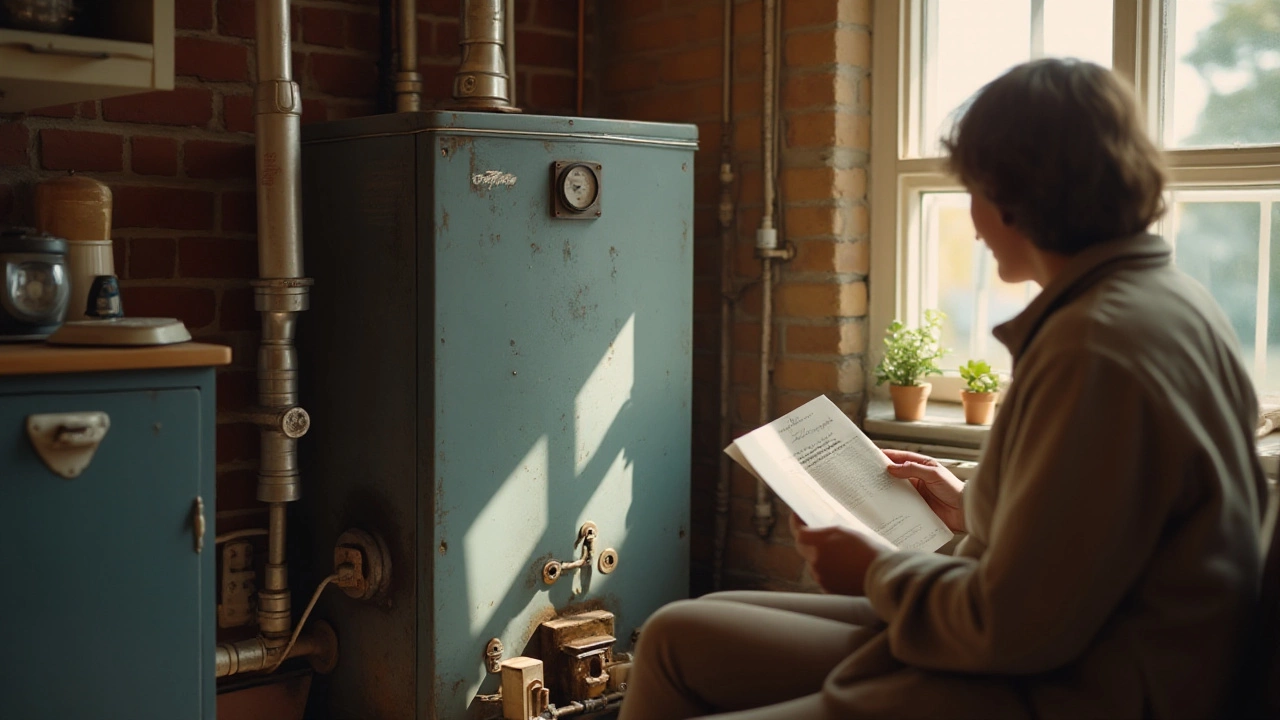Home Heating Made Simple: What Every Homeowner Should Know
When the temperature drops, the last thing you want is a cold house or a broken boiler. Luckily, most heating problems have easy fixes or clear signs that tell you when to call a pro. This guide pulls together the most common heating appliances – boilers, heat pumps, water heaters and extractor fans – and shows you how to keep them humming.
Spotting Boiler Trouble Before It Freezes You Out
Boilers are the heart of most UK homes. A funny noise, a loss of pressure, or warm water that takes forever to arrive are red flags. Check the pressure gauge first; it should sit between 1 and 1.5 bar when the system is cold. If it’s low, top it up using the filling loop – just follow the valve instructions and watch the needle rise.
Next, listen for gurgling or banging. Those sounds often mean air is trapped in the radiators. Bleed them with a radiator key: hold a cloth under the valve, turn it slowly, and close it once water flows out steadily. If the boiler still won’t fire up, it could be a faulty thermostat or a broken pump. In those cases, a quick call to a qualified technician saves you a night in a chilly bedroom.
Heat Pumps and Water Heaters: Quick Fixes You Can Try
Heat pumps are efficient but can act up if the outdoor unit gets clogged with leaves or dust. Turn off the power, remove any debris, and give the fins a gentle spray with a garden hose. Then check the indoor fan – a blocked filter will make the pump work harder and may shut it down. Re‑install the filter and reset the system; most models have a reset button on the control panel.
Water heaters often give the same symptom: lukewarm water. For electric heaters, a simple reset of the high‑limit thermostat can solve the problem. If the water is still cold, sediment may have built up at the bottom of the tank. Flushing the tank once a year with a garden hose clears the sludge and improves efficiency. For gas heaters, ensure the pilot light is lit; if it’s out, follow the manufacturer’s relighting steps or call a professional if you’re unsure.
Extractor fans in kitchens and bathrooms aren’t heating devices, but a faulty fan can make humidity rise, leading to mold and a damp feeling that makes any heating feel weaker. If the fan hums but doesn’t spin, the motor may be seized. Turn off the power, remove the cover, and give the motor a gentle tap with a rubber mallet. Often the blades free up and the fan runs again. If the motor smells burnt or the fan still won’t move, replace the motor – it’s a cheap part and a quick DIY job.
Regular maintenance is the cheapest way to avoid emergency calls. Schedule a boiler service once a year, clean heat pump filters seasonally, and flush your water heater annually. Keep an eye on error codes; most modern units display a code that you can look up in the manual or online. Knowing what the code means lets you decide whether a quick reset will do or if a professional visit is needed.
Bottom line: a little inspection and routine care keep your heating running smoothly, saves money, and stops you from shivering on a cold night. If you’ve tried the fixes above and still face problems, reach out to a local heating expert. At Rugby Appliance Repair Services we’re just a phone call away, ready to get your home warm again fast.









